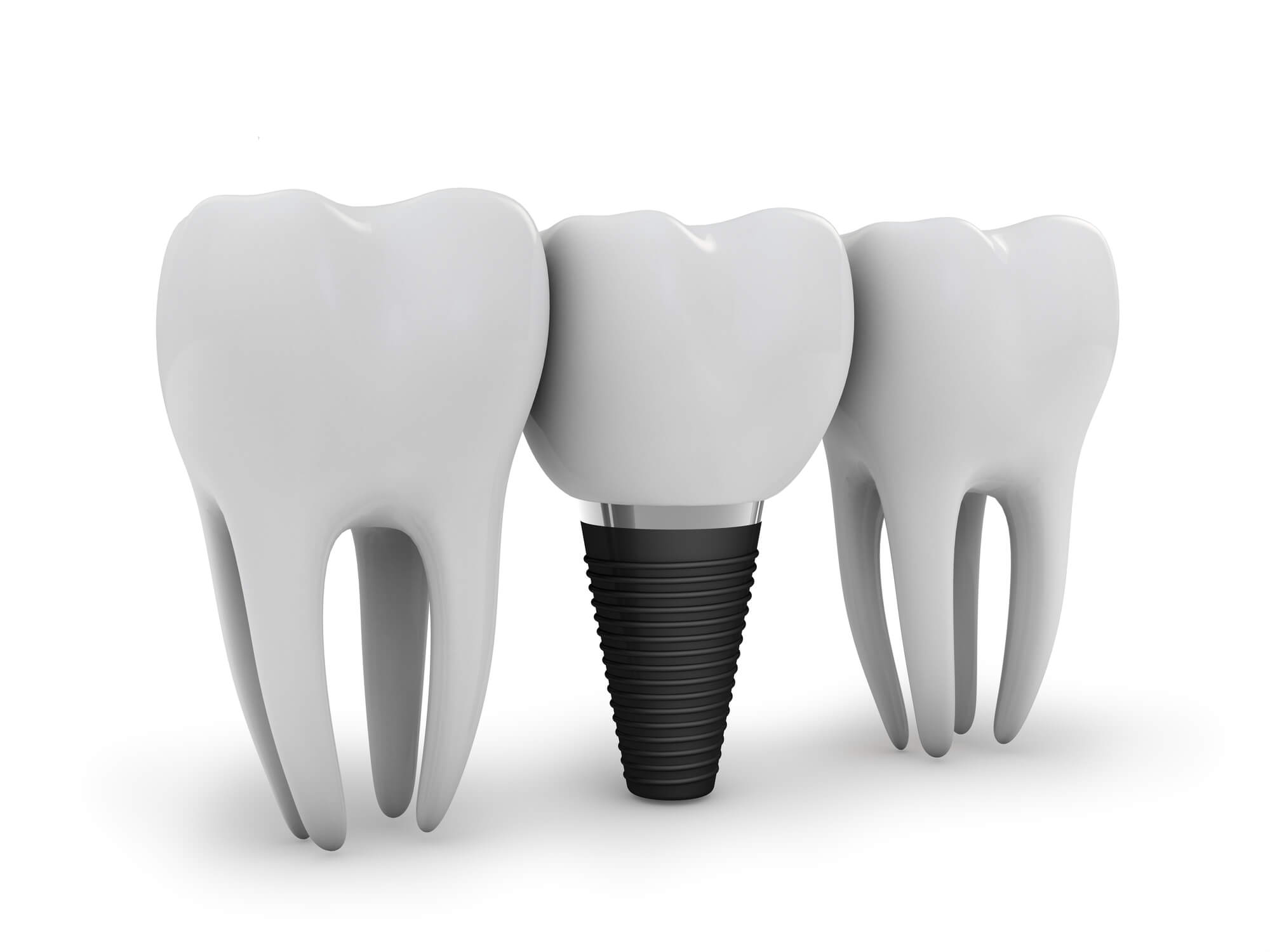Dental implants in Wilson make restoring your smile easier than ever before! Many people don’t understand how they work or believe implants only replace the tooth. There’s much more to the treatment than you may know.
We’ll go over how dental implants work, why they have such a high success rate, and the benefits you’ll notice after getting them.

What are Dental Implants?
Dental implants are used to replace your missing teeth and their roots. They help restore your ability to eat and speak normally while blending in with the rest of your teeth. Unlike traditional dentures, implants provide an effective long-term solution for those needing a tooth replacement.
The incredible benefits of dental implants make this treatment one of the most popular ones available for those suffering from tooth loss. These advantages include:
- Lasts a lifetime
- Durable
- Natural-looking
- High success rate
- Prevents jawbone loss
- Keeps adjacent teeth stable
Parts of a Dental Implant
Dental implants come in three crucial parts that ensure the success of the treatment. These different pieces make them feel comfortable and secure in your mouth. The parts that make up your dental implant include:
The Crown
The crown is the top portion of the dental implant that acts as the replacement tooth. It’s similar to any other dental cap you might get to restore a damaged or weakening tooth. Crowns are custom-made with porcelain or zirconia to precisely match the shape and color of the rest of your teeth.
The Abutment
The abutment connects the implant post and the crown. It’s the most important part of a dental implant because it provides extra stability and keeps the crown in place.
The Implant Post
The implant post replaces the missing tooth’s root and gives your prosthetic tooth strength and stability. When people think of dental implants, they often forget about this crucial first step to the procedure! The surgical post distinguishes dental implants from traditional dentures.
What Happens During the Procedure?
Now that you’re familiar with the parts of a dental implant, it’s time to learn what happens during the surgical procedure. It’s typically done in three steps over the course of about six months unless you’re getting a same-day tooth replacement.
Below are the three steps of a dental implant treatment.
Step One
The first step of a dental implant procedure is the implant post placement. After putting you under anesthesia, we will surgically place the post in your jawbone. Doing this requires us to carefully drill a hole in your upper or lower jaw so it can be firmly placed.
Step Two
Step two is the healing process. After placing the implant post in your jaw, we have to wait for it to fuse to your jawbone. This process is called osseointegration and helps the implant become strong. After it’s complete, the bone that grew around the post should lock the implant post in place, making it as sturdy as your natural teeth.
Step Three
The third and final step of the dental implant treatment is placing the abutment and crown. This requires another minor surgery to reopen the gums to expose the implant post. After the abutment is attached and we close the gum tissue around it, you’ll need to wait about two weeks for your gums to heal.
Finally, we put the crown on top once you’re completely healed and your jawbone is strong enough to support the new tooth’s use. You can now leave with a fully restored new smile!
Other Types of Dental Implants
Thanks to incredible advances in dental technology, several types of dental implants are available to suit your needs and wants. There are options to replace a single tooth, multiple teeth, and even treatments that can be completed in one day!
Here are some of the other types of dental implants available in dentistry:
- Implant supported dentures
- Same day tooth replacement
- Snap in dentures
- Multiple teeth replacement
Who Can Get Dental Implants?
Those who are missing teeth can get replacements, but not everyone makes an ideal candidate for dental implants. If you have periodontal disease that resulted in bone loss, you need to cure the disease and get a bone graft before getting dental implants. This ensures that your mouth is healthy and that you have enough jawbone to support the implant.
If you’re an active smoker, you will need to quit before getting dental implants. Research has shown that smoking can lower the success rate of dental implants.

Need to Replace Your Missing Teeth with Dental Implants in Wilson?
You don’t have to live with missing teeth any longer. Tryon Family Dentistry is proud to offer dental implants to restore your teeth and your confidence. If you’re interested in learning more about this treatment and if it’s right for you, give us a call today.

